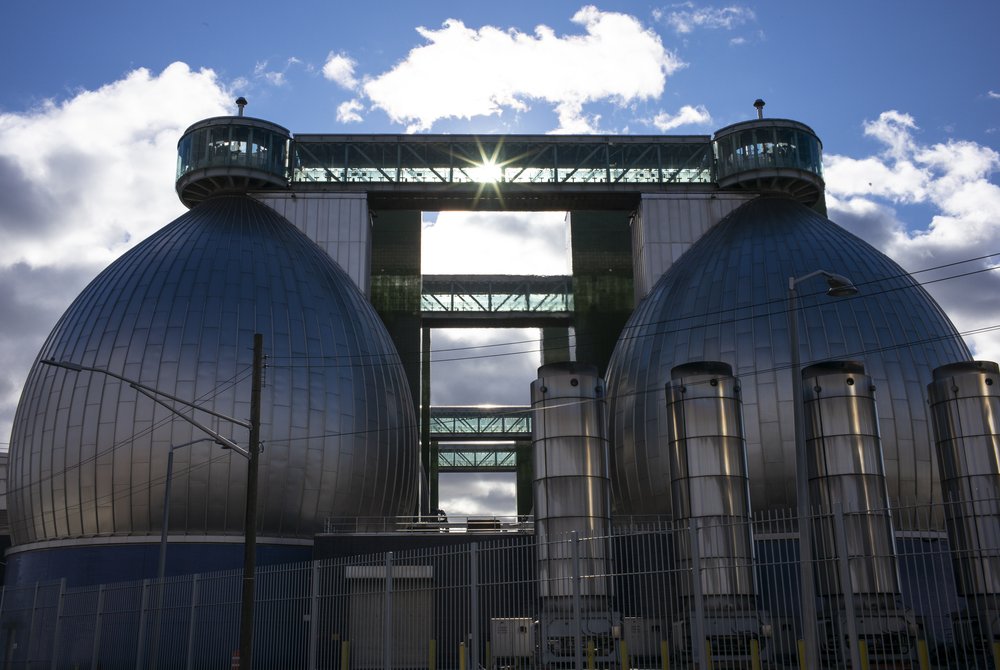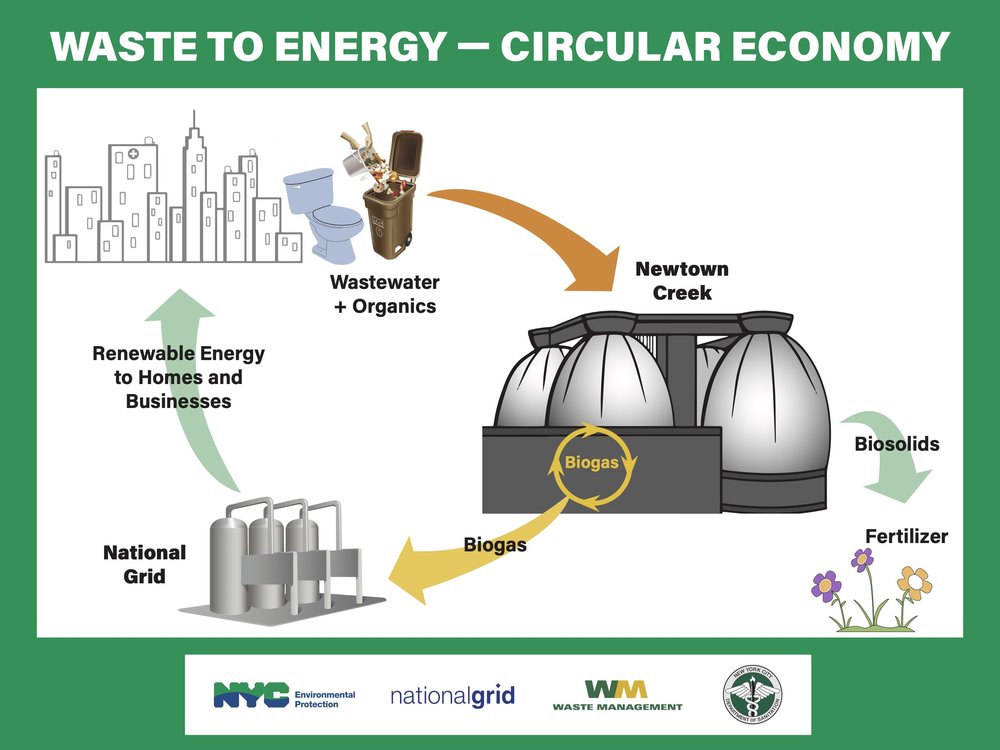Project to convert NYC compost to heating fuel goes offline weeks after launching
Nov. 11, 2023, noon
The highly anticipated project already faced years of delays before it was unveiled in June. But it's already gone offline for repairs.

A highly anticipated project in Brooklyn to convert organic waste into natural gas for heating fuel has gone offline only months after being activated, city officials acknowledged — and there’s no clear timeline for its return.
The 145-foot-tall silver “digester” eggs at the Newtown Creek Wastewater Treatment Plant in Greenpoint break down wastewater and organic waste from the city’s compost program into water, carbon dioxide and so-called biogas, which is primarily methane, a potent greenhouse gas.
The gas was initially scheduled to begin feeding the city’s heating supply in 2015. But that effort — led by National Grid and the city Department of Environmental Protection — faced years of delays due to broken equipment and supply chain issues caused by the pandemic.
The gas produced by the digesters was used to help heat the Newtown Creek Plant’s boilers, but the excess was “flared,” or burned off as carbon dioxide, which contributes to climate change.
City officials said that finally changed in June as they celebrated the project’s completion, touting it as the first of its kind.
“Making our organic waste work for NYC and diverting it from landfill is critical to building a more sustainable city,” Deputy Mayor for Operations Meera Joshi said in a statement at the time.
But weeks later, it became clear the system was not working as promised, said Willis Elkins of the Newtown Creek Alliance, a watchdog group that’s monitored the project’s progress over the years.

Elkins said he and other Greenpoint residents watched as the haze of burning natural gas returned over the digester eggs in late August.
“We noticed the flares are back on and we reached out to DEP and they said, ‘oh, there's been an issue,’” Elkins said.
National Grid spokesperson Karen Young said the project is undergoing “maintenance work to ensure continued operation of the facility to deliver clean energy for the local community.”
DEP spokesperson Edward Timbers said the project “has presented challenges,” adding that National Grid is responsible for getting the system back online.
Neither Young nor Timbers specified exactly what caused the plant to stop feeding gas into the city’s heating supply, or when the problem is expected to be fixed.
“Our highly skilled technicians working with independent specialists are conducting this maintenance and have begun the restart phase,” Young said in a statement.
“There's no accountability from National Grid or DEP on the failures of this project."
Willis Elkins, Newtown Creek Alliance
City officials in June said the project would help reduce demand for fossil fuels. But the biogas releases a similar amount of carbon dioxide emissions as conventional natural gas when it’s flared off, Elkins pointed out. And the methane pumped out of the Newtown Creek plant risks leaking out of the city’s pipes, further polluting the atmosphere.
“Prior to when the project came online this summer, we flared off excess gas from the facility, which is what is happening now. Once the maintenance is done, we will resume feeding the gas back into their grid,” Timbers said.
Elkins said he’s concerned the Newtown Creek plant won’t be able to handle all the gas produced by organic waste collected by the city, which is slated to grow when composting becomes mandatory across the five boroughs in 2025.
Timbers said the facility can now process up to 500 tons a day, though the city is only sending about 250 tons a day. “Newtown Creek has the capacity to digest about twice as many organics as we are processing now, so we don’t currently have concerns about accepting additional organics in the future," he said.
Elkins said he remains frustrated at how hard it is to get answers – “There's no accountability from National Grid or DEP on the failures of this project,” he said.
Timbers said the DEP “is working on a way to improve communication with the public concerning the project – developing a page on our website where people can see in real-time or near real-time whether the system is on-line, or whether it is down for maintenance.”
NYC is finally doing universal compost collection. Now where will they put it?